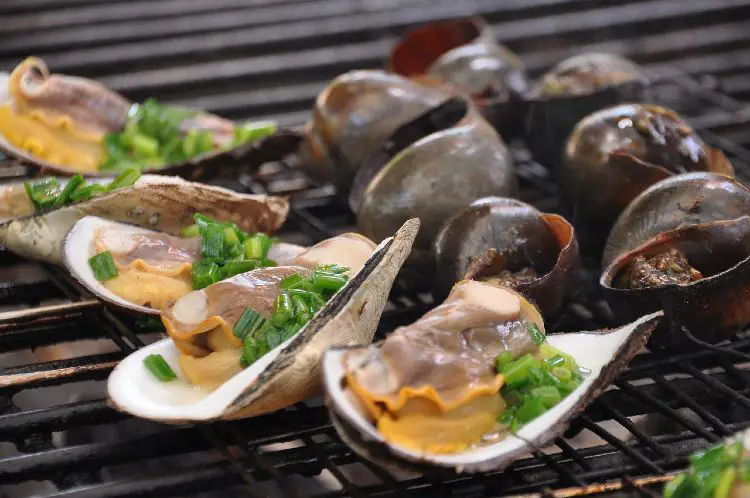A Beekeeping Course at Oak Tree Cottage Apiaries
One of my longstanding ambitions has been to keep bees. I met husband and wife beekeepers Christiaan Howlett and Chris Panaro and their colleague Jeff Bee (a fine example of nominative determinism) at the Wild Thyme Food Festival at Chipping Norton a few months ago, and kept their business card. I decided to book a place at one of their beekeeping courses, and so six months later I found myself in a school room in the rural hamlet of Flaxley near the Forest of Dean, Gloucestershire, on a very intensive day of learning all about this ancient craft.
Jeff has been keeping bees for over thirty years, he is an active lecturing member of one of the most closed Masonic lodges in Britain, the British Beekeepers’ Association, and as one of the founders of www.beesabroad.org.uk, he has travelled the world teaching others how to become confident beekeepers.
The first part of the course is a talk with slides and written notes, which is followed by lunch and then an afternoon of looking at the hives, handling the bees and discussing all the problems and difficulties that the novice beekeeper might face.
It is remarkable to note that human beings have been keeping bees for over 10 000 years, and largely as a result of great media attention on colony collapses there is now a renaissance of interest amongst gardeners and environmentalists to keep bees. Jeff told us how we all need to create more biodiversity all around us, in the form of flowery meadows, field margins, strips of nectar rich flowers that connect farm fields and also the planting of more orchard trees and lime trees. In the areas of Britain where there is monoculture, the bee populations are reduced, and therefore in-breeding tends to occur in smaller colonies. As a direct result bees become weaker and are more prone to diseases, such as varroa infestations. If all their crop pollinating activities are taken into account, then it has been calculated that bees contribute £1 billion annually to the British economy. We should all, therefore, be looking to find ways to ensure their survival and prosperity.
Jeff discussed the various different types of honeybees and also described the other insects that share similar habitats, such as bumblebees, solitary bees, wasps and hornets. There was an anatomy lesson detailing the bodies of bees, showing how each individual part of the bee is utilised in either gathering nectar and pollen, producing brood food, creating heat or ventilation, protecting the hive, looking after the queen, manipulating the comb or leaving scent.
It is particularly interesting to note that the Nasonov gland leaves a lemony scent which helps attract other bees at the moment of swarming, whilst the Hypopharyngeal gland helps to produce brood food to feed the larvae. Bees emit an alarm pheromone, or chemical smell, which has the same odour as bananas when they think the hive is under attack.
Jeff taught us that, in an average hive at the height of summer, there are approximately 60 000 worker bees, 1 queen and 2000 drones. The worker bees clean the hive, feed the brood, attend the queen, process honey, produce wax, build comb, ventilate the hive, guard the entrance, collect nectar, pollen water and propolis and then die within around 40 days or so.
The queen can actually live between 3 and 5 years and within that time she lays 2500 – 3000 eggs every day during the summer. If the worker bees do not think their queen is laying enough eggs, they may well try to create a new queen by feeding larvae with Royal jelly in supersedure cells. The queen is much longer and larger than an ordinary worker bee and she needs to be marked with different coloured dots (according to the different years) so that she can be easily identified by the beekeeper.
The male drone bees exist simply to mate with queen bees, which they do at drone congregation areas. Their demise is swift and cruel at the end of summer, as the dwindled number of worker bees that remain over winter in the hive (normally around 10 000) do not want extra mouths to feed. Drones are left to die, wingless and ejected from the hive, out in the cold.
You will be left in no doubt at what an efficient, industrious and frugal society a bee colony is, run by communal, collaborating insects that use every waking moment working, constructing, producing and managing.
In the course we discovered how important bee genetics is as a scientific discipline to create bees that have placid and calm characteristics. It is crucial to buy your first colony from a reputable source. We learned how frames are made, hives assembled and stacked and how additional supers are added when the bees are running out of space. Careful management of the hive is extremely important throughout the year, and particularly during March to October, when the conscientious beekeeper visits the colony every 7 days to ensure all is happy, healthy and hygienic.
Jeff highlights everything that you need to know to get started keeping bees, so make sure you bring a notebook and a pen: you will not want to miss a single word of his invaluable experience. He delineates the whole beekeeping year, from the quiet times in winter right through to April and May, when the beekeeper needs to be on constant swarm alert, and collecting the honey at the end of the summer.
We were also taught how to deal with pests and diseases, how to keep the hive clean and free of parasites, how to ensure the bees are well fed and watered, how to guard against woodpeckers and mice, which flowers to plant in the garden, where to position the hive, how to manage a swarm and how to ensure the new nucleus of bees is safely moved into the hive.
The most interesting part of the day, of course, was visiting Oak Tree Cottage Apiary. Flaxley is a very pretty little hamlet, it looks as if the clock has stopped sometime in the Victorian era, and as you walk the few metres between the classroom and the cottage make sure you stop and admire the “bee house” on the curb, where the honey pots are sold.
Chris and Christiaan now own 35 hives, but they want to increase this to 100. They explained how it is important to have volume in order to make a living out of beekeeping, and they sell honey, candles, cards and beeswax as well as equipment, bee colonies and accessories.
The hives are set out on the grassy perimeter of their garden, and all around them are wild flowers, tall grass, clover patches, a vegetable garden, pots planted with flowers and right behind the property there are farm fields planted with oil seed rape. The neighbours play their part too and in their plot I spied row upon row of dahlias and sunflowers.
In Chris’s hives there are some New Zealand bee colonies as well as swarm colonies he has captured. The bees were very calm and docile and we were all able to handle them without fear. We had spent a considerable amount of time being taught how to ensure we dress appropriately for the job, as bees can crawl into trousers and any open holes. By wearing the right bee suit and gloves we felt confident and prepared.
We were shown how to light and use a smoker, which helped to calm the bees and as we inspected the hive, identified the queen, examined a waggle dance and looked through comb we were able to put all of the morning’s theoretical work into practice.
The apiary at Oak Tree Cottage has been especially set up as a commercial business, so it is a very good example for both the amateur enthusiast and the aspiring professional to come and see how a working beekeeper lives and works. Chris and Jeff chat to one another and ask the students to pinpoint various things in the hive, so that everyone can understand the sorts of issues that may arise when left to manage a hive alone.
One of the great highlights of the course is the food. In a former life Chris was a chef, and it is evident that he and Christiaan care deeply about the provenance and preparation of their food. We enjoyed homemade roasted tomato and garlic soup with rosemary focaccia, poached salmon, garden salad, raised Gloucester Old Spot pie, a plum and almond tart, homemade fruit scones and biscuits, teas, coffees and juices.
In total the course lasted eight hours, and at just £85 it was unbelievably good value for money. There is a bag to take away at the end which is filled with notes, catalogues and brochures. You will definitely need to buy yourself a proper beekeeping manual before you get started as there is no way that a one day course could possibly teach you everything you need to know. Like all things worth learning in life, time, practice and hands-on experience are the real teachers, but this is an excellent introductory course. Even if you drive away thinking that beekeeping is not for you, you will, no doubt, feel great respect and not an inconsiderable amount of awe for artisans who are so very talented, patient and skilled.
Contact Details
Oak Tree Cottage Apiary
1 Oak Tree Cottages
Flaxley
Gloucestershire GL14 1JR
Telephone: 01452 762779
Website: www.oaktreecottageapiary.co.uk
Follow the team on Twitter: @OakTreeCottage



